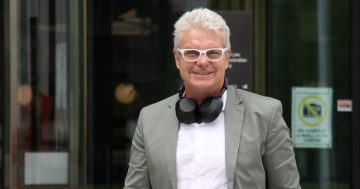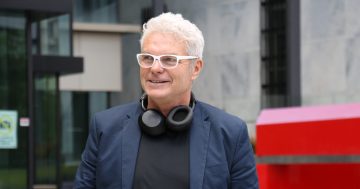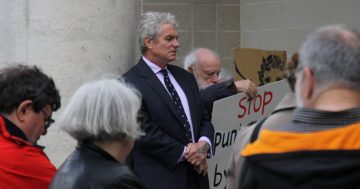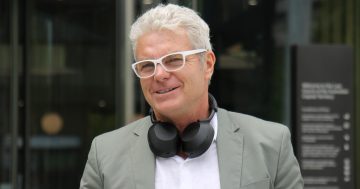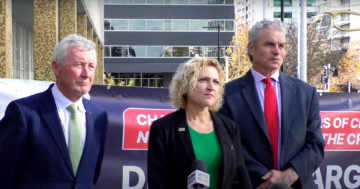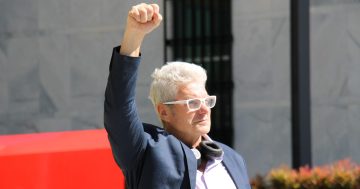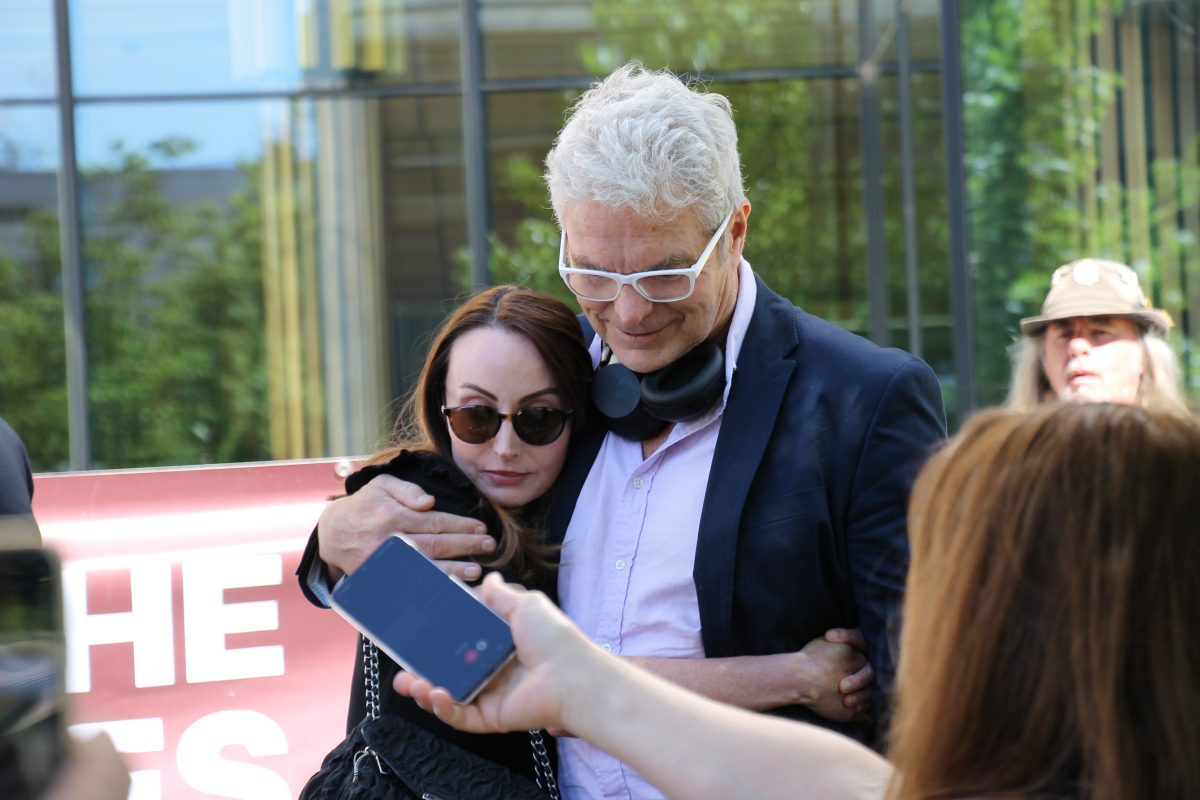
David McBride was met by his supporters after he pleaded guilty on Friday. Photo: Albert McKnight.
David McBride has pleaded guilty to three charges laid over his whistleblowing several days before his trial had been scheduled to start, but then told his supporters, “I stand tall and I believe I did my duty”.
He had been accused of providing confidential information to three ABC journalists from 2013 to 2017 during a posting in Canberra while he had been a lawyer and a major in the army.
The prosecution was to argue this disclosure was not part of his official duties.
He was first committed to the ACT Supreme Court in 2019, spent years fighting his charges and his trial was scheduled to start next week.
However, on Friday (17 November), he appeared in court again and pleaded guilty to three charges.
These were one count of dishonestly appropriating Commonwealth property and two counts of the unauthorised communication of military information to other people while a member of the Defence Force.
Justice David Mossop ordered an intensive corrections order assessment, adjourned until 23 November to begin organising a sentencing date and vacated the trial.
Outside the courthouse, McBride told media and his supporters: “I stand tall and I believe I did my duty”.
“We love you, David,” his supporters called as he walked away.
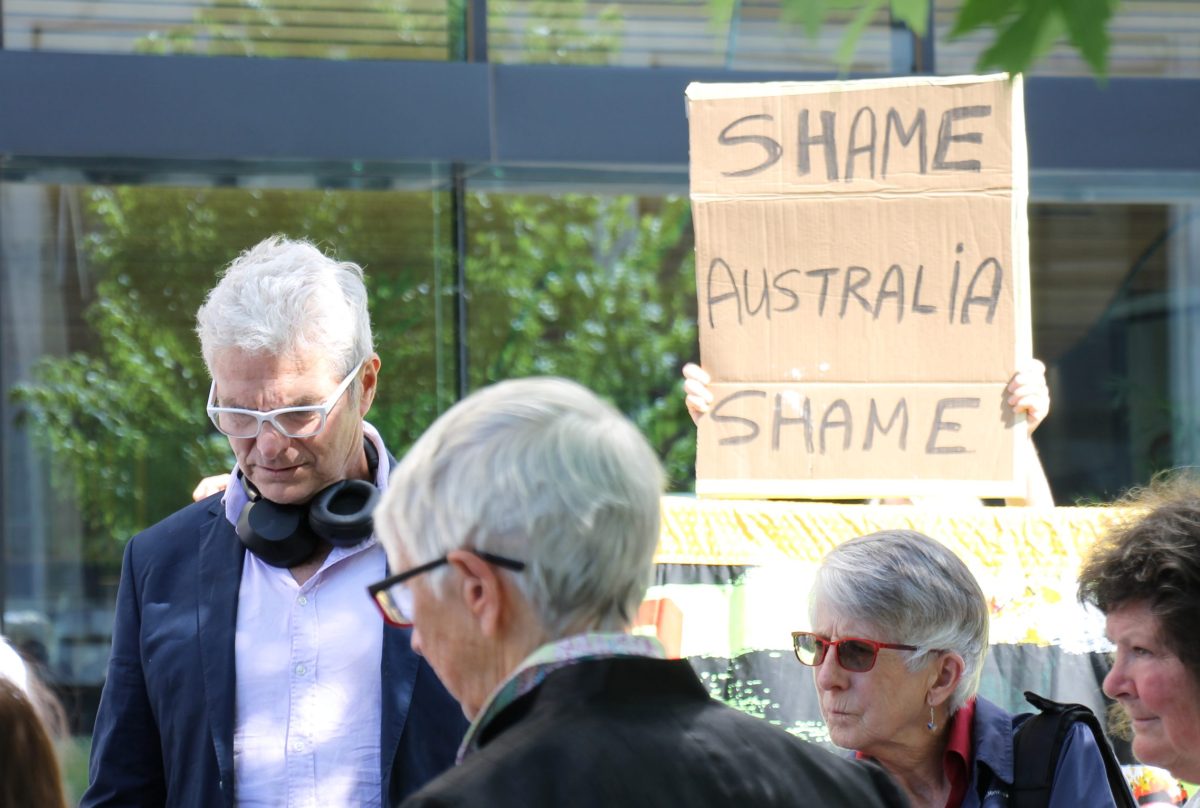
David McBride has been supported by numerous people at court this week. Photo: Albert McKnight.
McBride’s trial had been scheduled to start on Thursday before it was moved to Monday (20 November) after his lawyers said they wanted to file for leave to appeal.
His lawyers had argued that due to an official oath he had sworn, there may be circumstances when his duty implied that he could act in the public interest of Australia.
But on Wednesday, Justice David Mossop said he would be directing the jury on the basis that there was no aspect of McBride’s role as a military officer that allowed him to act in Australia’s public interest when that was contrary to a lawful order he had been given.
His attempt to seek leave to appeal on Thursday then failed, with Chief Justice Lucy McCallum saying Justice Mossop’s ruling on issues raised about the oath was “not obviously wrong”.
Mr McBride had originally been handed five charges before pleading guilty to three.
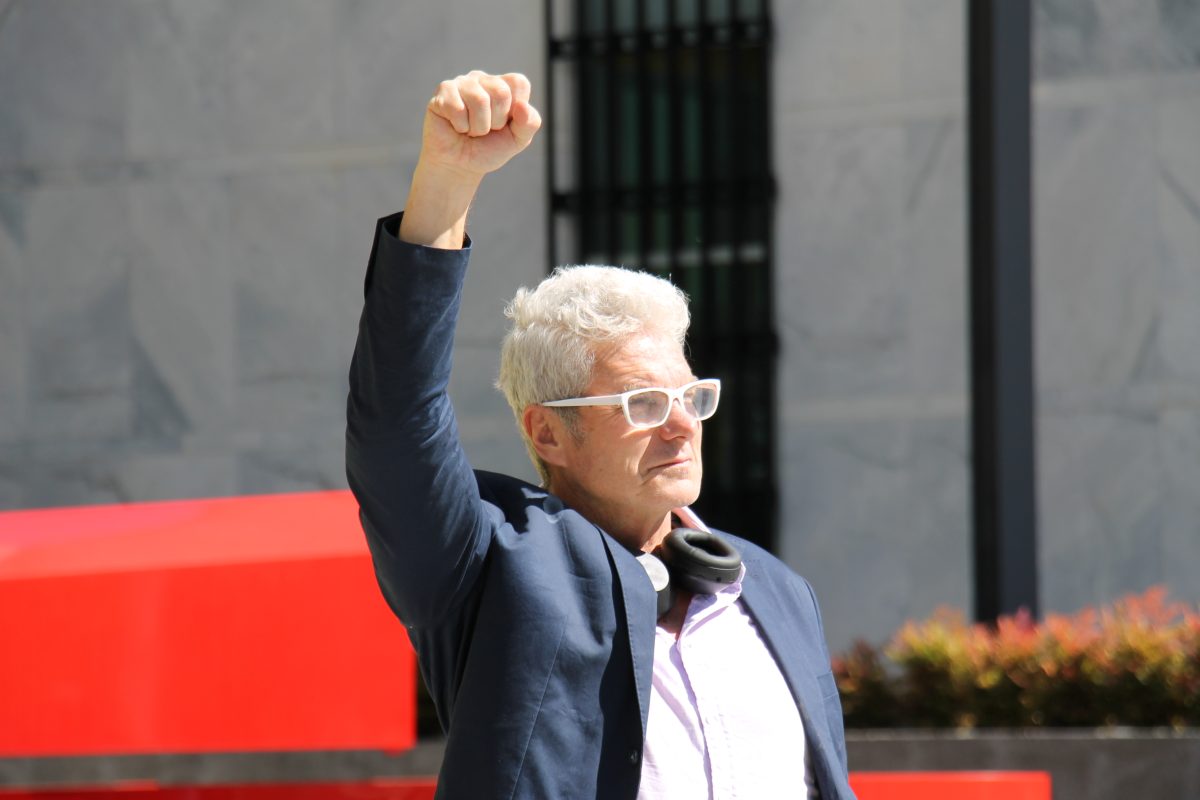
“I stand tall and I believe I did my duty” – David McBride. Photo: Albert McKnight.
“There is no public interest in prosecuting whistleblowers, and certainly no public interest in sending them to jail,” said Kieran Pender, a senior lawyer at the Human Rights Law Centre.
“If McBride is sentenced to a term of imprisonment, the Attorney-General should immediately pardon him to recognise the dangerous impact this case is having on Australian democracy.
“This development must be a warning sign to the government that reform to federal whistleblowing law and the establishment of a whistleblower protection authority is urgent and long overdue. We cannot wait any longer.”
NSW Greens Senator David Shoebridge, who visited the courthouse after McBride entered his pleas, called this “a deeply unsettling day for the Australian public and the public’s right to know”.
“Literally we’ve seen David McBride’s legal defence ripped from under him following the efforts of the Commonwealth government to prove that if you’re in the military, you don’t have any higher duty to the public that overrides your duty simply to follow orders,” he said.
“We’re coming into summer but I can feel the chill right across the country. Anyone in uniform, for example, will be looking at this and thinking even if they have evidence of gross corruption or a war crime, they had better keep quiet, because they might be going to jail just like David McBride.
“You can’t ignore the culpability of the Attorney-General in this, because all of this could have been avoided by him terminating the prosecution, fixing the laws and acting in the public interest, and I don’t believe any of that happened.”












